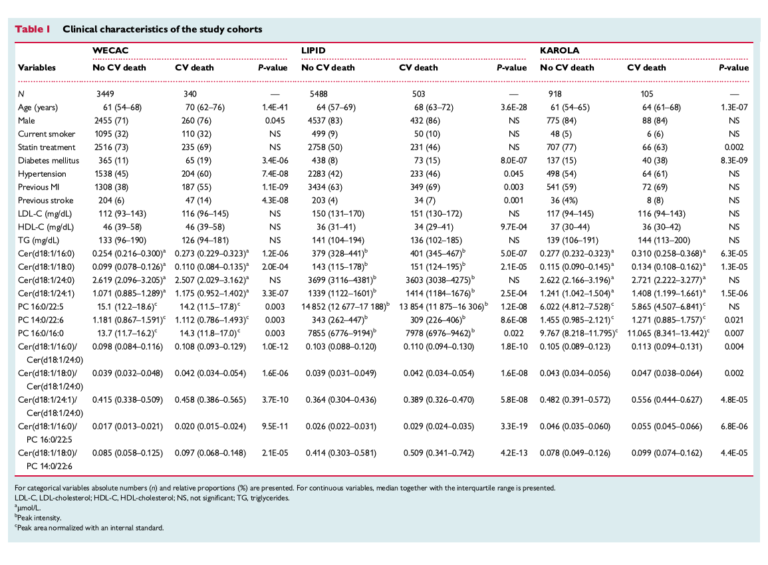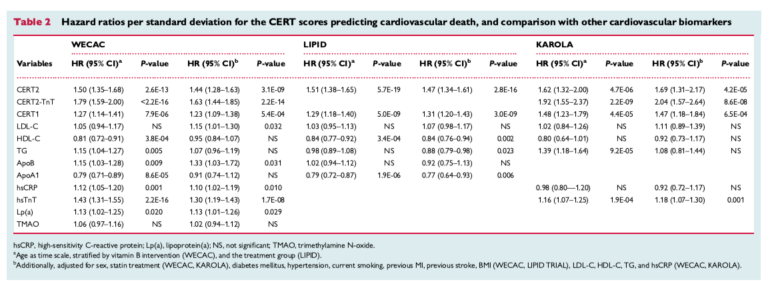This 2019 trial pooled data from three large European cohorts — WECAC, LIPID, and KAROLA — to assess how effectively various biomarkers predicted cardiovascular mortality.
The authors found novel composite biomarkers, based on measurements of blood ceramide and phospholipid levels, predict cardiovascular risk more accurately and more robustly than other biomarkers. This was true whether patients were or were not taking statins. These results, however, must be considered alongside the authors’ substantial conflicts of interest, as they hold IP related to these biomarkers. These results, however, must be considered alongside the authors’ substantial conflicts of interest, as they hold IP related to these biomarkers.
More importantly, this trial showed a number of conventional CVD biomarkers failed to predict heart disease mortality. As shown in Tables 1 and 2 below, LDL-C, HDL-C, and TG levels were similar in subjects who died of cardiovascular disease and those who did not; adjusted risk ratios for each of these biomarkers were significant in only one out of three studies. Notably, diabetes significantly increased heart disease risk, even after adjustment.


This is consistent with the observations of a number of researchers working in the cardiovascular space who have argued LDL-C does not predict cardiovascular risk. If true, this implies treatments that lower LDL-C may not necessarily reduce cardiovascular risk, and those that increase LDL-C may not necessarily increase risk.